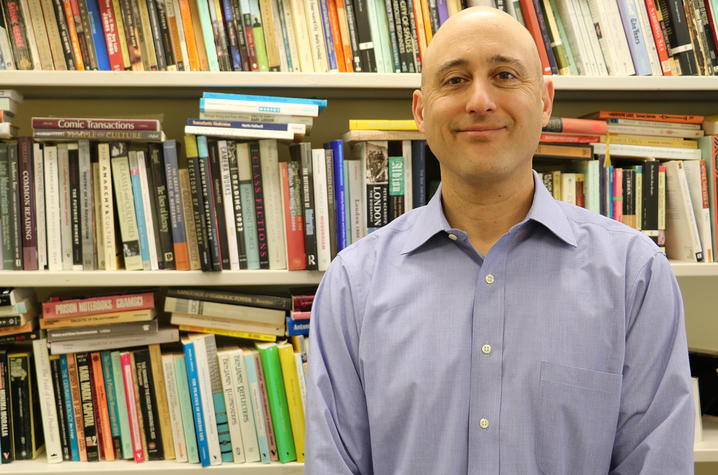By Gail Hairston
The John Simon Guggenheim Memorial Foundation announced Friday that University of Kentucky’s Peter Joseph Kalliney and 172 other scholars, artists and scientists in the United States and Canada have received a coveted Guggenheim Fellowship.
According to the foundation’s announcement, successful candidates were appointed on the basis of “prior achievement and exceptional promise.”
“It’s exciting to name 173 new Guggenheim Fellows,” said the President of the Guggenheim Foundation Edward Hirsch in a media release. “These artists and writers, scholars and scientists, represent the best of the best. Each year since (its establishment in) 1925, the Guggenheim Foundation has bet everything on the individual, and we’re thrilled to continue to do so with this wonderfully talented and diverse group. It’s an honor to be able to support these individuals to do the work they were meant to do.”
Over its 92-year history, the foundation has granted more than $350 million in fellowships to over 18,000 artists, scholars in the humanities and social sciences, and scientific researchers. The list includes scores of Nobel laureates, Fields medalists, Turing Award winners, poets laureate, members of the various national academies, winners of the Pulitzer Prize, and other important, internationally recognized honors.
“The extremely competitive Guggenheim Fellowship is a tremendous recognition of Peter’s scholarship,” said Professor Jeffory Clymer, chair of the UK Department of English. “He is the model of a scholar-teacher, whose research enriches his teaching of our undergraduate and graduate students. The Guggenheim Fellowship will support his new research on global English literature during the Cold War, and via his teaching will translate directly for our students into their understanding of literature’s role in world politics.”
Kalliney is UK’s William J. and Nina B. Tuggle Chair in English and the associate chair of his department in the College of Arts and Sciences. Specializing in 20th-century literature in English, Kalliney is the author of three books on the literatures of decolonization. His Guggenheim Fellowship was awarded to support his current research and book endeavor, “Bandung Generation: Literature, Decolonization, and the Aesthetic Cold War.” The project focuses on the efforts of the U.S. and Soviet Union to influence the emergence of global literature in English in the decades after World War II.
 “For most of the 20th century, the dominant aesthetic debate, globally, was between those who believed in complete aesthetic autonomy and those who argued for a realist literature that serves political and social ends. I consider how the terms of this debate, and the quest for aesthetic nonalignment in the Cold War, facilitated the emergence of colonial and postcolonial literature in a global literary context,” Kalliney said.
“For most of the 20th century, the dominant aesthetic debate, globally, was between those who believed in complete aesthetic autonomy and those who argued for a realist literature that serves political and social ends. I consider how the terms of this debate, and the quest for aesthetic nonalignment in the Cold War, facilitated the emergence of colonial and postcolonial literature in a global literary context,” Kalliney said.
“Late colonial and early postcolonial writers had some of the most perceptive things to say about this aesthetic debate because they were not enamored of either side. Whereas nearly all the existing studies of the Cold War focus on Western European, North American and Soviet writing, this project will turn our attention to what is sometimes called the Global South.
“The Cold War is a pivotal but poorly understood episode in the globalization of literary production. The immersion of writers from what was then called the Third World into global literary space happened in the laboratory of an aesthetic and political Cold War,” he added.
UK is the University for Kentucky. At UK, we are educating more students, treating more patients with complex illnesses and conducting more research and service than at any time in our 150-year history. To read more about the UK story and how you can support continued investment in your university and the Commonwealth, go to: uky.edu/uk4ky. #uk4ky #seeblue
